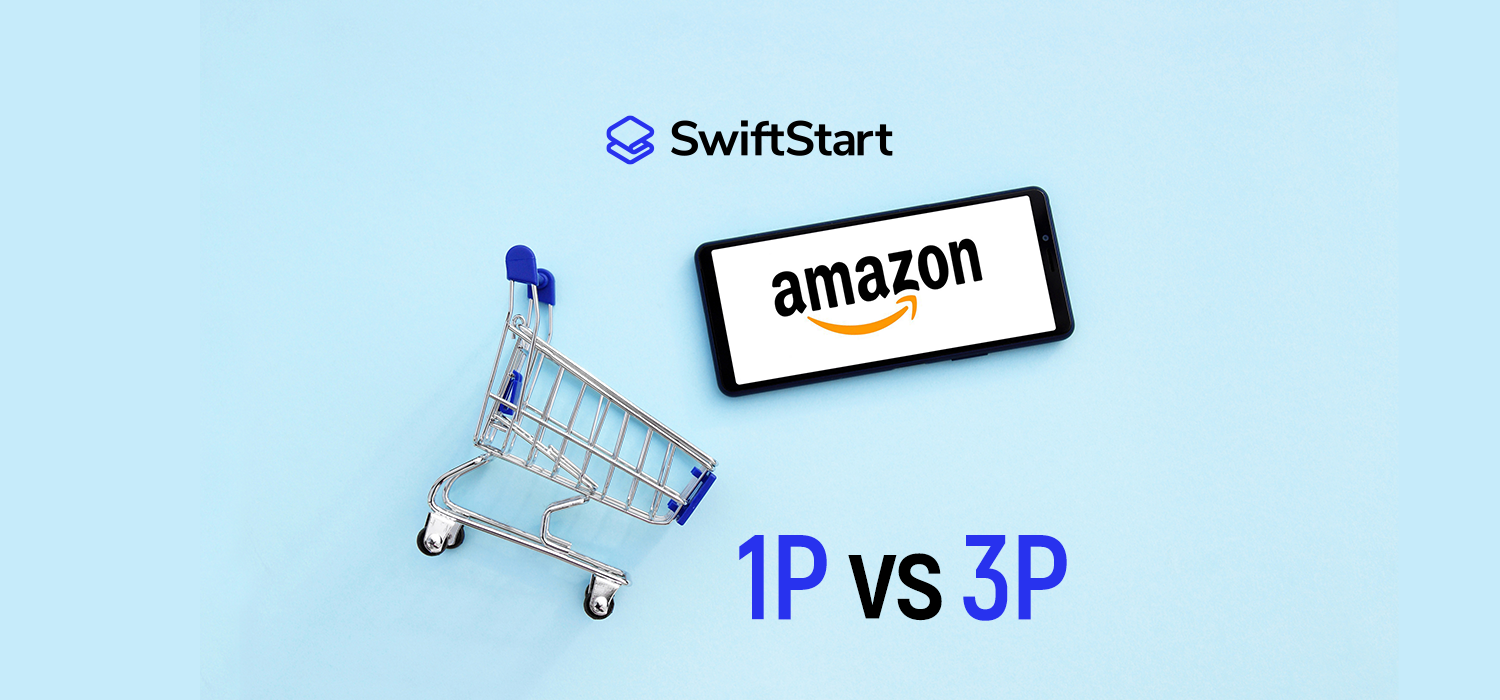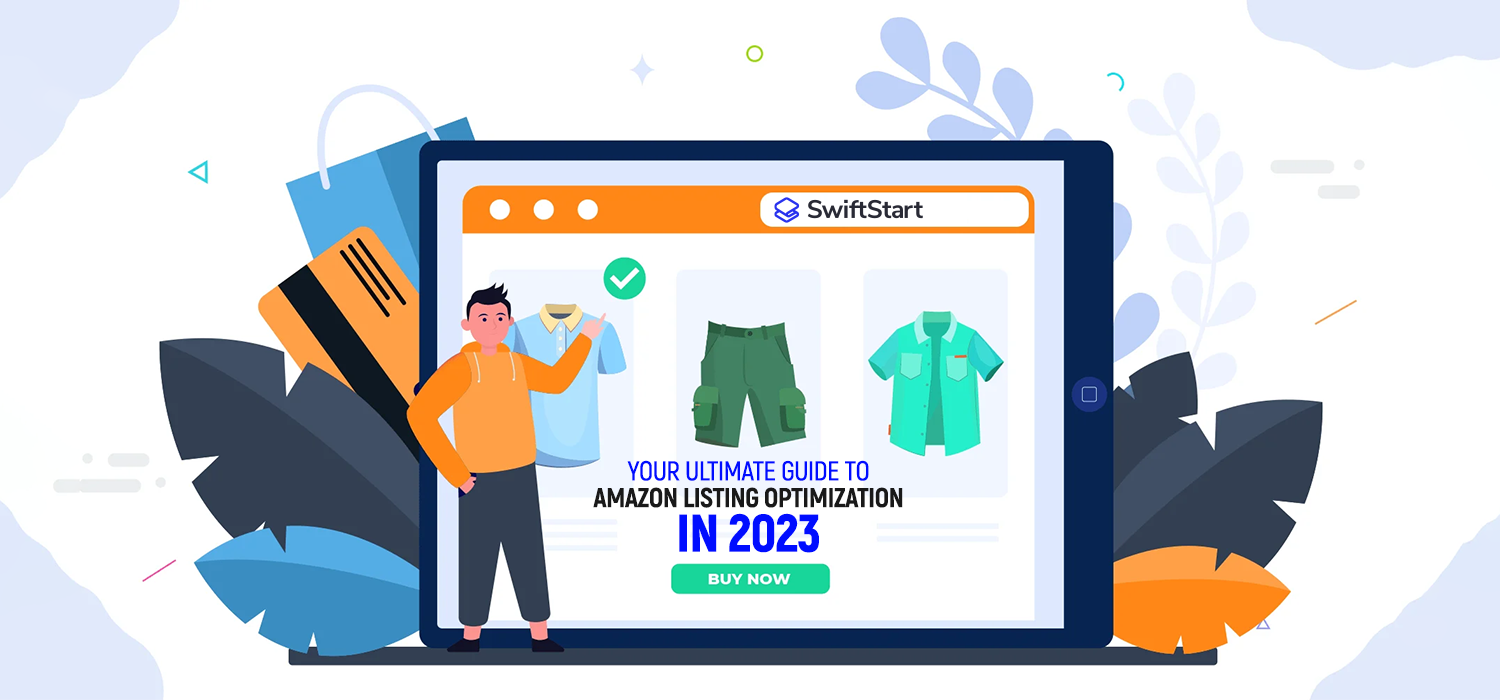SwiftStart launched Fomin during the height of the pandemic. The brand is now expanding its product lines after tripling revenue.

Have you ever wondered what that mysterious "LPN number" on Amazon is about? For new Amazon sellers navigating a sea of codes and identifiers, distinguishing between them can be confusing. To ensure excellent customer service, Amazon sellers must grasp the intricacies of the return process. These LPN numbers aren’t just random digits on a label; they hold the key to a well-organized and efficient order fulfillment process.

Download our Amazon Seller Guide Now!
So, are you curious to learn what is LPN number on Amazon signifies and how it streamlines your operations, ensuring your packages arrive swiftly and accurately? Continue reading this guide article as we will discuss the significance of this LPN number within your return process and how you can find these numbers. So, let’s dig into the details to kick things off.
Amazon LPN is a unique identifier assigned to individual units or items within Amazon's vast network of fulfillment centers. It is a digital label, enabling accurate tracking and efficient order management as they traverse Amazon's extensive warehouse system.
Do you want to switch to Amazon FBA private label but don’t know how to start it? Read our article on how to start an Amazon FBA Private Label.
Imagine LPN numbers as virtual breadcrumbs guiding your products through Amazon's intricate fulfillment centers. They serve as a precise means to identify item locations, ensuring efficient allocation and retrieval during picking and packing processes.
Do you want to streamline your Amazon packaging process? Read our guide on what is Amazon's frustration-free packaging.
Amazon's commitment to maintaining the integrity of its product pipeline is evident in its use of LPN numbers. Moreover, placing an LPN barcode Amazon over the existing FNSKU (Fulfillment Network Stock Keeping Unit) prevents unfulfillable or returned products from accidentally mixing with new merchandise. This strategic use ensures that your customers consistently receive the quality they expect.
Our team will diagnose your Amazon account and build a 100% customized, 30-point growth plan.
WANT IT
Amazon LPN numbers play a pivotal role in the management of returns. They facilitate Amazon in categorizing and handling returned items effectively. Sellers can access Return Reports, making tracking LPN numbers and reasons for returns easy. This offers valuable insights into product performance and customer preferences.
Are you a new seller on Amazon and want to know about Amazon's return policy? Read our seller's guide on Amazon Return Policy in 2023.
When a seller receives a removal order on the Amazon marketplace, the LPN number is a valuable starting point. Sellers can manually input these numbers into an Excel sheet, allowing for a straightforward comparison with the Amazon FBA report. This method aids sellers in understanding why an item was returned to Amazon and for which orders. To pinpoint the Amazon LPN number in the FBA returns report, follow these steps:
Analyzing return reports and customer reviews is crucial for continuously improving product quality, which can lead to long-term Amazon success.
Are you looking for authentic review checkers to identify the legitimacy of product reviews? Read our guide on 6 best Amazon review checker tools.
The average return rate for items on Amazon falls between 5% to 15%. This range helps you gauge your performance as a seller and identify the need for potential product changes and business practices to reduce return rates.

By examining your Return Reports, you can:
As a seller, monitoring the reasons and frequency of returns is essential in evaluating the health of your business. We recommend creating a spreadsheet to track these trends, enabling you to take informed actions based on your observations.
If you want to increase your Amazon earnings, read our guide on tips for sellers to scale up profits on Amazon.
Searching for FBA removal inventory by LPN offers insight into the reasons behind a particular unit's return or unsellable status. This information can be incredibly valuable when organizing removals or filing claims with Amazon.
It's impossible to underestimate the significance of an LPN number sticker. We hope after reading this guide on what is LPN number on Amazon you can understand how it plays a pivotal role in guaranteeing the smooth flow of inventory, sales, and returns. Moreover, without this crucial identifier, items could easily become lost within the shipping process and mistakenly treated as brand-new stock.

Such a scenario could have severe consequences, especially considering that returned goods often arrive damaged or with missing parts. So, whether you've been an Amazon FBA seller for a while or are just starting, Amazon FBA LPN numbers can simplify your inventory management, making it a seamless process.
Do you want to optimize your Amazon presence and supercharge your sales? Swift offers free 1 ASIN reports (Amazon listing audit), affordable Image stacking, A+ recharge, SEO Listing, and PPC services to enhance your product listing, visibility, and sales. Moreover, our Amazon Catalogue Course will help you become an experienced Amazon seller.
Also, if you want to streamline your brand's operations without hiring an agency, our 450+ Amazon SOPs Library is your solution. So, don't miss out on the opportunity. Contact our Amazon marketing agency experts today and take the first step toward elevating your brand's presence.
Join our social footprint for more Amazon insights and growth hacks. Become a part of SwiftStart Amazon Mastermind to stay updated with the latest Amazon news, tips, and growth hacks.
LPN stands for "License Plate Number" in Amazon's inventory management context. It is a unique identification number assigned to each inventory unit in Amazon's fulfillment centers.
Looking to maximize your sales potential this Q4 on Amazon? With the holiday season approaching, sellers are gearing up for the year's most lucrative sales period. For Amazon sellers, mastering this season is a must. Whether avoiding stock shortages or dealing with Amazon's shifting inventory limits, staying on top of things this Q4 demands meticulous […]
)
Most brands that sell products on Amazon have probably heard of the importance of providing an inclusive shopping experience to increase their sales. By taking steps to make your shop more accessible to all customers, you can tap into a larger market and boost your bottom line. But what does Inclusive Shopping Experience mean, exactly? […]
)
Are you ready for the biggest shopping extravaganza of the year? With Black Friday just around the corner, Amazon sellers are gearing up for a sales bonanza like never before. However, if your Amazon store isn't fully prepared for this upcoming November holiday sale, you may miss a substantial revenue stream. Now you might be […]
)
STREAMLINING BUSINESS PROCESSES As a small business owner, you want to make sure that your processes are scalable. This means they can handle an increase in traffic and sales without stressing out the system or compromising customer satisfaction. The best way I've found how scale-up processes within any company was by looking at what worked […]
)
Amazon partners with you no matter the way you choose to grow your brand on Amazon. There are various ways by which you can sell on this platform including Amazon 1P, 2P & 3P. In this blog we are discussing the two of them; Amazon 1p Vs 3p. 1P is handling everything on single and […]
)
There is no denying that Amazon is the world's largest online marketplace, with several billions of goods being sold on its platform. In 2019, estimates revealed that almost every individual in America possesses an Amazon Prime membership, and the numbers are bound to rise. The recent pandemic is a contributing factor to the rise of […]
)
If you are looking for ways to increase your profitability on Amazon, then increasing the average selling price (ASP) of products may be one way. If a company wants to increase its ASP without raising prices on existing products, it can do so by decreasing costs for sourcing and selling products. Check out these strategies to maximize your profit margins.
)
If you're launching a product on Amazon, there's one thing that should be on top of your priority list: Amazon listing optimization. After all, it's the first thing potential customers will see, and how well you optimize your listing can make or break a sale. But with Amazon constantly changing its algorithm, it can take […]
)
Achieving a high ranking on Amazon is a pivotal strategy to boost sales, ensuring increased visibility among potential customers navigating the platform. Key Highlights Why We Wrote This? This content intends to provide sellers on Amazon with actionable strategies to enhance their product rankings on the platform. Understanding the key factors considered by Amazon's algorithm […]
)
Amazon has introduced a system that allows merchants and customers to communicate directly, known as the Amazon message center. Highlights Why We Wrote This? We wrote this content so sellers understand that the Amazon Message Center is vital for effective communication between buyers and sellers. This service lets customers contact sellers regarding orders using Amazon's […]
)